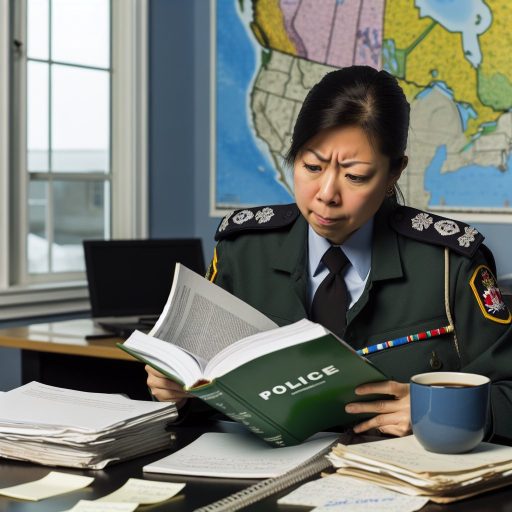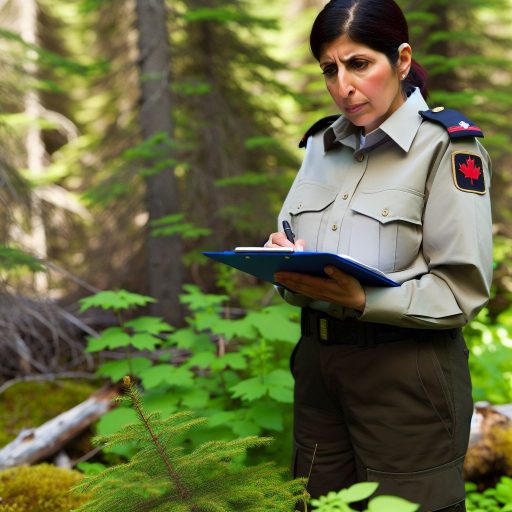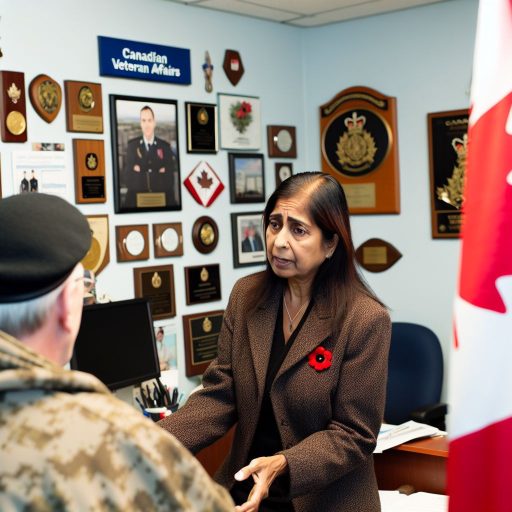Overview of the Role of a Veterans Affairs Officer
A Veterans Affairs Officer plays a vital role in supporting veterans.
These professionals assist veterans in accessing benefits and services.
They conduct interviews to understand veterans’ unique needs.
Additionally, they provide guidance on eligibility requirements.
Key Responsibilities
Veterans Affairs Officers have varied responsibilities.
They help veterans file claims for medical and financial benefits.
Furthermore, they facilitate access to education and job training programs.
They also advocate for the rights of veterans at local and federal levels.
Moreover, they maintain detailed records and reports of interactions.
Skills and Qualities Required
Success in this role requires a specific skill set.
Excellent communication skills are essential for effective interactions.
Empathy and understanding of veterans’ situations are critical qualities.
Problem-solving abilities help in navigating complex systems.
Organizational skills ensure that cases are managed efficiently.
Importance of Training and Certification
Training provides the foundation for effective service.
Many Veterans Affairs Officers begin with relevant educational backgrounds.
Certification can enhance knowledge of veterans’ benefits and policies.
Continuous education keeps them updated on changing regulations.
Furthermore, specialized workshops can improve their service delivery.
Educational Qualifications Required
Minimum Degree Requirement
A bachelor’s degree is typically the minimum requirement for a Veterans Affairs Officer position.
This degree can be in any field, but relevant majors provide an advantage.
Common fields include public administration, social work, or health administration.
Advanced Degree Options
An advanced degree may enhance your chances of securing a position.
A master’s degree in social work is particularly beneficial for many roles.
This degree can expand your expertise in veteran services and counseling.
Unlock Your Career Potential
Visualize a clear path to success with our tailored Career Consulting service. Personalized insights in just 1-3 days.
Get StartedRelevant Certifications
Certifications can help demonstrate your commitment and expertise in the field.
Consider obtaining certifications like Certified Veterans Service Officer (CVSO).
Other relevant certifications may also enhance your qualifications.
Practical Experience
Hands-on experience in a related field is highly valued.
Internships or volunteer work with veterans’ organizations can be beneficial.
Additionally, experience in government positions can improve your application.
Skills Development
Developing key skills can complement your educational background.
Strong communication skills are essential for interacting with veterans.
Moreover, understanding policies related to veterans’ affairs is crucial.
Problem-solving abilities are also important to address veterans’ needs effectively.
Continuous Education Opportunities
Staying updated in this field requires continuous education.
Courses in veteran regulations and benefits are highly advisable.
Attend workshops and seminars to enhance your knowledge base.
Essential Skills and Competencies Needed
Communication Skills
Effective communication is vital for Veterans Affairs Officers.
The ability to articulate information clearly helps in guiding veterans.
Moreover, strong interpersonal skills foster trust and rapport.
Listening skills are equally important for understanding veteran needs.
Knowledge of Veteran Benefits
A comprehensive understanding of veteran benefits is essential.
Officers should be aware of different programs and eligibility criteria.
Knowledge helps in efficiently processing claims and requests.
This expertise allows officers to provide accurate guidance.
Analytical and Problem-Solving Abilities
Analytical skills help in assessing complex situations.
Being able to identify issues is crucial for timely resolutions.
Problem-solving abilities aid in finding effective solutions for veterans.
Additionally, critical thinking is necessary for decision-making.
Empathy and Compassion
Empathy plays a significant role in supporting veterans emotionally.
Understanding their struggles helps build a supportive environment.
Compassion encourages officers to advocate for veterans’ needs.
Ultimately, this quality enhances the overall service experience.
Organizational Skills
Strong organizational skills are necessary for efficiency.
Managing multiple tasks and deadlines can be challenging.
Effective time management ensures that no veteran feels neglected.
Moreover, attention to detail is crucial in handling paperwork.
Technical Proficiency
Familiarity with technological tools enhances productivity.
Officers should use software for case management and record-keeping.
Proficiency in communication platforms aids remote interactions.
Continual learning about new technology ensures they remain effective.
You Might Also Like: How Ombudsmen Help Resolve Workplace Disputes
Experience Requirements for Applicants
Relevant Professional Background
Candidates should possess experience in a related field.
Previous roles in social services enhance job readiness.
Working with veterans or active service members is beneficial.
Additionally, familiarity with government programs is a plus.
Education and Training
Applicants must hold a bachelor’s degree in a relevant discipline.
Fields like social work or public administration are ideal.
Certification in veterans’ affairs can strengthen an application.
Moreover, ongoing training and workshops showcase commitment.
Volunteering and Internships
Volunteer experience in veteran-centric organizations is invaluable.
Internships with government agencies provide practical skills.
Such experiences enhance understanding of veterans’ needs.
Furthermore, they demonstrate dedication to service.
Skills and Leadership Qualities
Strong communication skills are essential for this role.
Applicants must be adept at conflict resolution and negotiation.
Leadership experience helps in managing diverse teams.
Next, organizational skills play a critical role in task management.
Find Out More: Roles and Responsibilities of a Border Services Officer
Certification and Licensure Considerations
Required Certifications
Many employers seek veterans affairs officers with specific certifications.
These certifications can validate professional expertise and dedication.
Common certifications include the Certified Veterans Service Officer (CVSO).
Additionally, candidates may consider the Accredited Veterans Service Representative (VSR) certification.
State Licensure
Some states require licensure for veterans affairs officers.
Licensure ensures that the individual meets state-specific criteria.
Moreover, each state’s requirements can vary significantly.
Candidates should research their state’s regulations thoroughly.
Continuing Education Requirements
Continuing education is vital for maintaining certifications and licensure.
Many certifications require periodic renewal through continuing education.
This ensures that veterans affairs officers stay updated on best practices.
Additionally, state licensure often has similar requirements.
Evaluating Certification Options
Pursuing certifications requires careful evaluation of options available.
Consider the benefits of each certification and its relevance to career goals.
Networking with current veterans affairs officers can provide valuable insights.
Researching accredited organizations can help ensure proper guidance.
Gain More Insights: Challenges Faced by Correctional Officers in Canada

Understanding Veterans’ Benefits and Services
The Importance of Knowledge
A thorough understanding of veterans’ benefits is crucial for officers.
They assist veterans in accessing various services and support.
Moreover, knowledge fosters trust and credibility in the relationship.
Types of Benefits Available
Veterans can access numerous benefits through the Department of Veterans Affairs.
Healthcare programs are among the most vital services offered.
Additionally, veterans often receive financial support and education benefits.
Housing assistance also plays a significant role in supporting veterans.
Moreover, employment services help veterans transition into civilian life.
Staying Updated on Changes
The laws governing veterans’ benefits frequently change.
Officers must stay informed about these changes to provide accurate advice.
Regular training and review of policy updates are essential practices.
Furthermore, networking with other professionals enhances knowledge sharing.
Connecting Veterans with Resources
Veterans’ Affairs officers serve as liaisons to various resources.
They help navigate complex systems to access needed benefits.
Typically, they build partnerships with local organizations for support.
In addition, they often conduct outreach programs to raise awareness.
Advocating for Veterans’ Rights
Veterans’ Affairs officers advocate for the rights of veterans.
They work to ensure veterans receive fair treatment and support.
This advocacy extends to legal rights and benefits entitlement.
Ultimately, advocating empowers veterans to claim their deserved benefits.
Gain More Insights: Correctional Officer Roles and Responsibilities Explained
Interpersonal Skills and Client Interaction
Effective Communication
Clear communication is essential in Veterans Affairs officer jobs.
You must convey information accurately to clients.
This includes both verbal and written interactions.
Use approachable language to establish trust.
Furthermore, active listening enhances client relationships.
Empathy and Compassion
Empathy is a vital skill for Veterans Affairs officers.
Understand the unique challenges faced by veterans.
Show compassion during sensitive discussions.
This connection helps in providing better support.
Moreover, it can ease the stress of the customers.
Conflict Resolution
Conflict resolution skills are crucial in this role.
Address issues calmly and professionally.
Identify the root cause of conflicts quickly.
Implement solutions that satisfy all parties involved.
Ultimately, maintain a positive environment for clients.
Building Relationships
Strong relationships enhance the effectiveness of service delivery.
Engage with clients to build rapport and trust.
Follow up on their progress to show genuine care.
Moreover, networking with local agencies can be beneficial.
Collaborative efforts can improve outcomes for veterans.
Training and Development Opportunities for Officers
Initial Training Programs
New Veterans Affairs Officers undergo rigorous initial training.
This training includes classroom instruction and hands-on experiences.
Participants learn about policies and procedures relevant to veteran services.
Additionally, they receive training on communication skills and conflict resolution.
Continuing Education
Veterans Affairs encourages ongoing education for its officers.
Officers can attend workshops and seminars throughout the year.
These opportunities keep them informed about changes in regulations.
Moreover, they can acquire new skills relevant to their roles.
Leadership Development Programs
Leadership programs are essential for career advancement.
These programs focus on enhancing leadership and management competencies.
Officers engage in team-building exercises and strategic planning sessions.
Consequently, they prepare for higher-level positions within the organization.
Certification Opportunities
Officers are encouraged to pursue relevant certifications.
Certifications validate their expertise and professionalism.
Available certifications include those in project management and human resources.
Additionally, specialized training in veterans’ benefits can be beneficial.
Mentorship Programs
Mentorship plays a pivotal role in professional development.
New officers are paired with experienced mentors for guidance.
This relationship fosters knowledge sharing and skill development.
Additionally, mentorship promotes a supportive work environment.
Online Learning Platforms
Online platforms offer flexible learning options for officers.
Courses cover a wide range of topics relevant to veterans’ affairs.
Officers can learn at their own pace from any location.
This accessibility enhances their skill sets without disrupting work schedules.




